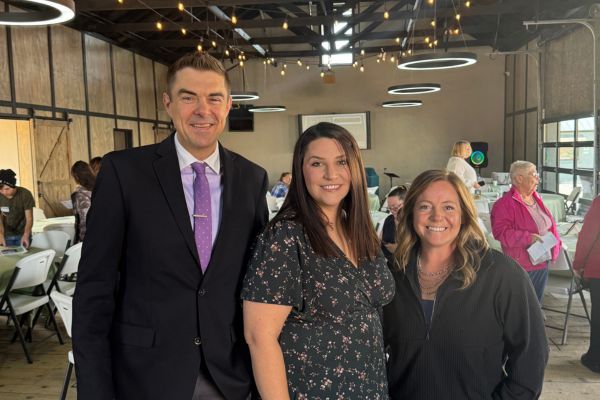There are many types of strokes, but the basic idea is that a clot stops blood from flowing to the brain, leading to the death of brain cells. Implementing some or all of these tips can lessen you or someone you love’s chances of having a stroke:
- Monitor your blood pressure.
-
- Recently, the high blood pressure standard changed to 130/80 from 140/90. High Blood Pressure is the most common controllable cause of stroke, and with new guidelines, many adults in the U.S. may be unaware that they have High Blood Pressure. Check here for instructions on monitoring your blood pressure at home, or talk to your doctor.
-
- Control your cholesterol.
-
- Cholesterol can build up in arteries and block blood flow, which may cause a stroke. The Mayo Clinic suggests making lifestyle changes, which include eliminating trans fats from your diet, exercising more, and drinking alcohol only in moderation. Sometimes healthy lifestyle changes aren’t enough, so if you’re at risk, talk to your doctor about medications that help lower your cholesterol.
-
- Get active.
-
- Getting active may sound daunting but if you evaluate your schedule, you’ll see simple changes you can make to exercise daily. These include taking the stairs, walking around the block every morning (bonus points for taking your dog with you), or exercising in short 15-minute segments a few times a day.
-
- Eat better.
-
- You may love those fatty fried foods, but they don’t love you back. Cut out foods high in trans-fat and look for healthier fats like omega-3 fatty acids found in fish and nuts.
-
- If you need to, lose weight.
-
- Obesity, and related complications, increase your chances of having a stroke. If needed, losing just five to ten pounds can make a difference.
-
- Don’t smoke.
-
- Just don’t do it. Smoking is the number one preventable cause of death.
-
By implementing these changes, you can reduce your chances of a stroke and enjoy life more. Also, the American Stroke Association created the acronym F.A.S.T. to help the public recognize a stroke when it happens. F.A.S.T. stands for Face Drooping, Arm weakness, Speech difficulty, and Time to call 9-1-1 immediately. By remembering this acronym you could make the difference between life and death.
Nobody can predict the future of their health, but staying insured is vital for emergency situations like this. If you missed open enrollment and you’re not currently enrolled in health insurance, certain qualifying life events (QLE) may make you eligible for a special enrollment period. QLE’s are life-changing events such as job loss, income change, marriage/divorce and birth/adoption of a child to name a few. Nevada Health Link can connect contact a certified broker or navigator for free enrollment assistance to see if you qualify for special enrollment.








